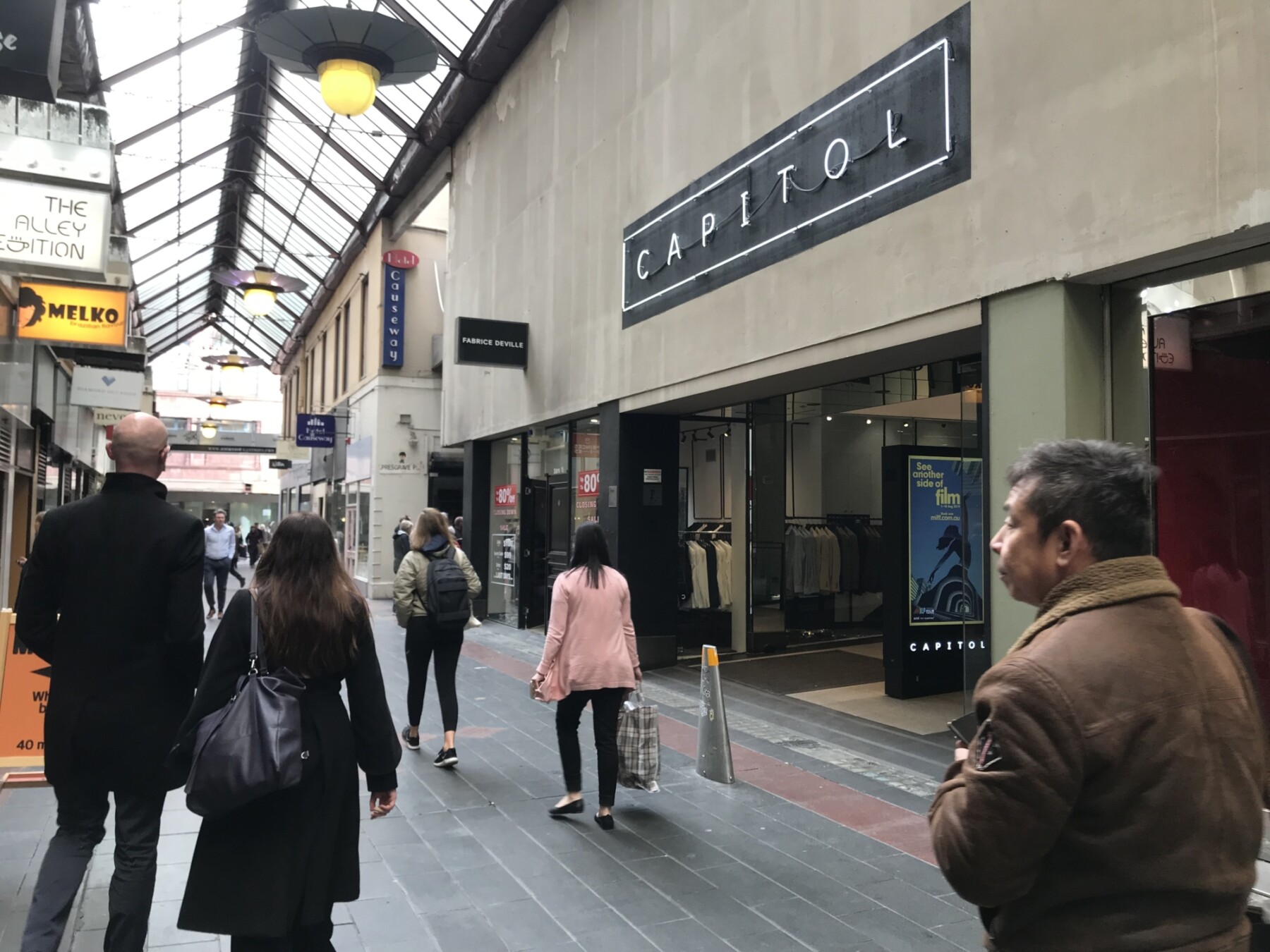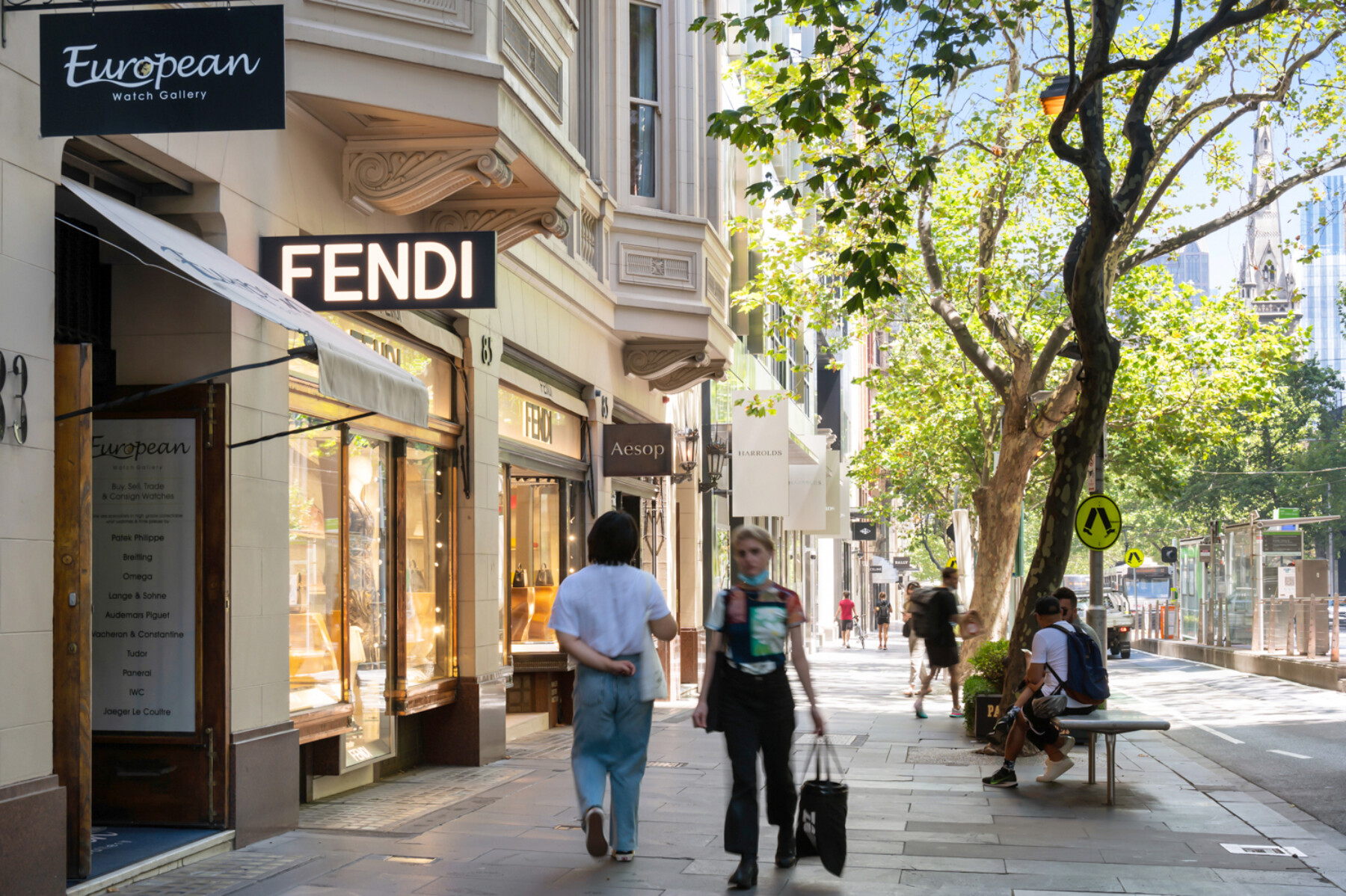Enquiry up, vacancies expected to come down
The face of Melbourne CBD retail has been through multiple phases since COVID and into 2023.
“Citywide, we’ve seen changes across the board from a tenant profile perspective,” Lockwood said.
“Over 2022, the first quarter saw an influx of specialty retailers take up leases in the CBD Core as clothing brands sought to redefine their in-store offering and take up central city positions. As we moved further out of restrictions mid-year, we noticed enquiry increase from hospitality operators with the overall long-term perspective from tenants become increasingly positive.” As evidenced by Fitzroys’ recent deals, suburban operators have been taking advantage of good opportunities.
“The CBD leasing market has been very positive so far this year, with an upbeat sentiment driving demand. Business confidence rose again in January and there is anticipation of growing office occupancy, tourist and student numbers in the Melbourne CBD.
“Food and beverage tenants are still making up the majority of the enquiry, but we have seen a larger influx of specialty and service retailers looking to expand into the CBD or relocate in to more prominent positions compared to this time last year.”
Major vacancies have emerged in Elizabeth Street and Swanston Street as landlords held back from meeting the market. Rents had gone up consistently in the CBD, and had no adjustments and fluctuations in the same way the suburbs had.
Service retail has seen a large drop as a proportion of enquiry amid the rise of food and beverage tenants and pubs, but existing businesses are seeing more customers come into the CBD for a haircut or to spend time at a beauty salon, perhaps get a coffee, and then go straight home, Lockwood said.
The CBD Core remained strong throughout 2022, with Fitzroys data showing vacancies in the broader block bound by La Trobe, Russell, Flinders, and Elizabeth Streets at 17.1%.
Fitzroys data includes all shopfronts within the designated precincts, including shops with ground-floor street frontage that are within shopping centres such as Emporium and St Collins Lane. Lockwood said some tenants have moved from shopping centre spaces to street-fronting space, including Bremont Watch Company, which moved from Collins Walk to a street-fronting space at St. Collins Lane.
The northern end around La Trobe Street has performed well, in line with the gradual return of university students to Melbourne University, RMIT, and other institutions, and the return of the international cohort that lives and studies in the area. La Trobe Street’s prime section vacancy is at a relatively low 9.1%, and this precinct is expected to be the most direct beneficiary of the rush return of Chinese international students in the coming months.
Also recording single-digit vacancies was the core of Flinders Street – from Elizabeth to Russell Street, immediately opposite Flinders Street train station and Federation Square – at just 5.4%.
The famed “Paris End” of the CBD – the east end of Collins Street - recorded by far the lowest vacancies of any precinct in the CBD at just 2.47%.
“The east end is still very popular for high-end retail and in particular hospitality operators. Both of these sectors have been remarkably resilient over the past three years,” Lockwood said.
“We’ve seen Aesop and Swarovski commit to stores, joining Gucci, Cartier and Hermes in the famous precinct.
Also within the east end precinct, Flinders Lane (13.25%) continues to thrive as a culinary destination. Grill Americano has recently joined the likes of Gimlet, Chin Chin, Supernormal and Garden State Hotel.
“We expect the east end to be particularly busy for hospitality tenants in 2023.”
The Western End of Collins Street (17.8%) is evolving with new developments coming out of the ground such as Charter Hall and GIC’s 555 Collins Street, which has attracted pre-commitments from Amazon and Aware Super. Also in the west of the CBD is Mirvac’s $1 billion dual-tower build-to-rent and office project at 7 Spencer Street and V-Leader’s $400 million future office tower at 600 Lonsdale Street, while The GPT Group recently completed its Queen & Collins project. Specialty tenants such as Cosentino have eyed off chances to activate the western core of the CBD, with Fitzroys leasing a Collins Street space to the international brand for a new showroom concept, while restaurant Freyja opened up and Italian artisan market is set to open this year, all looking to capitalise on the influx of office workers.
According to Melbourne City Council, some $2.5 billion worth of new development applications will be lodged in the CBD and surrounds in 2022 as developers and investors show their faith in the future of the city. Around 200 new development applications were lodged in the CBD.
Tenants optimising their space have included gaming giant EB Games, which moved from Swanston Street to Elizabeth Street (22.1%) in a deal struck by Fitzroys.
“We feel that moving into 2023, the overall sentiment will be positive within the CBD,” Lockwood said.

